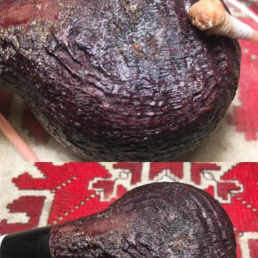When exploring the safety of various adhesives for use around food, a common question arises: “Is J-B Weld food safe?” This inquiry is vital for anyone intending to use this well-known epoxy in environments where it might come into contact with food items. J-B Weld is a renowned adhesive known for its strength and durability, but its suitability for use in food-related applications requires a closer examination of its chemical composition and the safety guidelines provided by the manufacturer. Understanding whether J-B Weld is safe for such uses involves delving into the specifics of its formulation and the regulatory standards that govern materials in contact with food.
Is j b weld food safe? -Answered
J-B Weld, known for its strength and durability as an adhesive, raises questions about its safety for use in food-related applications. While J-B Weld products are effective for bonding various materials, they are not typically certified as food-grade.
The safety of using J-B Weld in contact with food depends largely on the specific product and its chemical composition. Most J-B Weld formulas contain epoxy resins and hardening agents, which, once fully cured, are generally considered non-toxic. However, this does not automatically translate to being safe for direct food contact.
The FDA sets guidelines for materials that can safely come into contact with food, but standard J-B Weld products do not typically fall under these approved materials. Therefore, using J-B Weld on surfaces or in applications where it will directly contact food is not recommended without specific guidance from the manufacturer or confirmation of the product’s compliance with food safety standards.

Is J-B Weld Safe for Drinking Water?
When considering the use of J-B Weld in environments involving drinking water, the primary concern is its chemical safety post-curing. While J-B Weld is known for its strong bonding capabilities, its suitability for use in potable water systems is not straightforward. The safety of any adhesive in such applications depends on its full cure and the potential for leaching chemicals. It’s crucial to refer to the product specifications and seek out options specifically labeled for use in potable water systems if the intention is for direct and continual water contact.
How Long Does JB Weld Last on Metal?
JB Weld’s longevity on metal is one of its standout features. Known for forming robust bonds, this epoxy adhesive can last several years when applied correctly on metal surfaces. The lifespan depends on factors such as the type of metal, the conditions of use (like exposure to elements), and the precision of application. Regularly exposed to harsh conditions, the bond might degrade faster, but generally, JB Weld offers a long-lasting solution for metal repairs.
Is JB Weld Oil Resistant?
One of the notable properties of JB Weld is its resistance to various chemicals, including oil. This makes it a popular choice for automotive repairs, such as in engine blocks or fuel tanks, where oil resistance is essential. However, it’s always advisable to check the specific product type, as some formulations of JB Weld may offer better oil resistance than others.
Is J-B Weld Heat Resistant?
J-B Weld is renowned for its heat resistance, a crucial property for many of its applications. Different formulations of J-B Weld can withstand varying degrees of heat, with some products specifically designed to handle extreme temperatures. This characteristic makes J-B Weld suitable for applications like exhaust repairs, engine parts, or other high-heat environments. However, for extremely high temperatures, it’s best to consult the product specifications to ensure the chosen product meets the necessary requirements.
Understanding J-B Weld:
Before assessing its food safety, it’s important to understand what J-B Weld is. It’s a two-part epoxy adhesive known for its high strength and durability. Commonly used in automotive, marine, and household repairs, it bonds a wide range of materials including metal, plastics, ceramics, and wood.
The Composition:
The safety of any product for food-related use largely depends on its chemical composition. J-B Weld consists of a resin and a hardener which, when mixed, form a strong bond. The specific chemicals in J-B Weld vary depending on the product but generally include epoxy resins, polyamine hardeners, fillers, and metal powders. These components are designed to withstand high temperatures and pressure, making them ideal for heavy-duty repairs.
Regulatory Compliance:
For a product to be deemed safe for food contact, it must comply with certain regulatory standards. In the U.S., the Food and Drug Administration (FDA) sets guidelines for materials that come into contact with food. While J-B Weld isn’t specifically certified as food-grade by the FDA, it does meet several safety requirements that are indicative of its potential for safe use in certain food-related scenarios.
Applications and Limitations:
It’s crucial to understand where and how J-B Weld can be safely applied in contexts involving food. For example, it may be suitable for repairing kitchen tools or appliances that do not directly contact food. However, using it on surfaces that will directly touch food, like cutting boards or cooking utensils, is not recommended without further clarification from the manufacturer or an understanding of the specific product’s food safety rating.
Health and Safety Considerations:
While J-B Weld is renowned for its strength, it’s equally important to consider health and safety. Once fully cured, J-B Weld is non-toxic. However, during the curing process, it’s essential to ensure good ventilation and avoid direct contact with skin or inhalation of fumes.
Manufacturer’s Guidelines:
J-B Weld’s manufacturer provides specific guidelines on the product’s use. These guidelines offer valuable insights into the recommended applications and safety precautions. It’s always advisable to follow these instructions closely, especially when considering the product for use in food-related contexts.
Expert Opinions:
Consulting with experts or professionals in the field of adhesives and food safety can provide additional layers of assurance. These experts can offer perspectives on the suitability of J-B Weld for specific applications, considering factors like temperature, food type, and exposure duration.
Practical Examples:
There are several scenarios where J-B Weld has been used successfully in a way that involves indirect contact with food. For instance, repairing the exterior of a refrigerator or mending a broken handle on a pot. In such cases, J-B Weld offers a durable solution without posing a risk to food safety.
Alternatives:
For those situations where J-B Weld may not be the most appropriate choice, there are alternatives. Food-safe silicones, FDA-approved adhesives, and other products designed specifically for food contact are available. These alternatives can offer similar strengths while ensuring compliance with food safety regulations.
For projects requiring a food-safe adhesive, it’s important to explore alternatives to JB Weld. Food-safe adhesives are specifically formulated to be non-toxic and safe for use in environments where they may come into contact with food. These include FDA-approved epoxy resins or silicone-based adhesives. Such products are designed to maintain their integrity and safety even in direct contact with food items, making them ideal for kitchen repairs, food processing equipment, or other food-related applications.
By addressing these aspects, we gain a comprehensive understanding of the capabilities and limitations of JB Weld, guiding us to make informed decisions for various applications.
Conclusion:
In conclusion, while J-B Weld is celebrated for its strength and reliability in various repairs, its use in food-related applications should be approached with caution and understanding. It is vital to consider the specific product, its chemical composition, regulatory compliance, and the manufacturer’s guidelines. By doing so, one can make informed decisions on whether J-B Weld is the right choice for their food-related repair needs, ensuring safety and effectiveness in every application.

